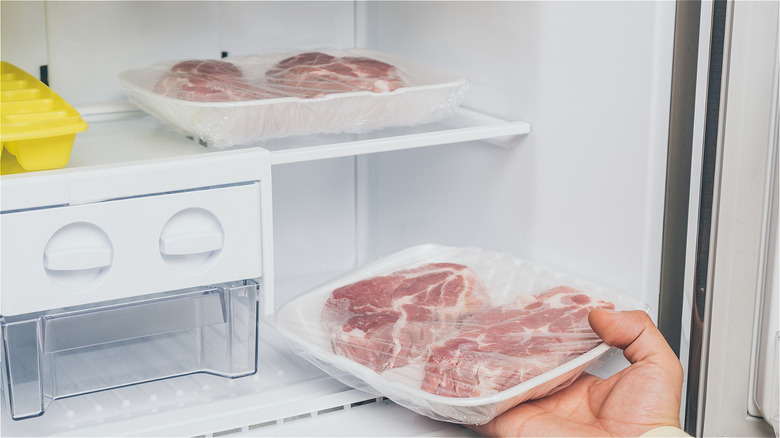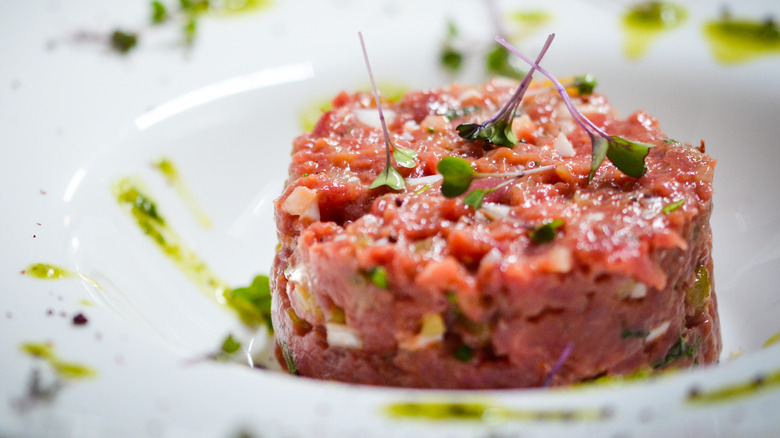Why You Should Freeze Your Meat Before Making Steak Tartare
One of the best ways for meat lovers to enjoy a high-quality cut of beef is with the unique preparation of steak tartare. Consisting of finely chopped raw steak mixed with flavorings like Worcestershire sauce, capers, and herbs, steak tartare showcases the rich, complex flavors of the beef in a way few other dishes can. And when properly prepared, it's safe to eat. However, there's one trick to making this simple meaty delight even easier to prepare — freezing your beef before you begin.
To be sure, you don't want to start with a solid block of frozen steak. Instead, give your steak a brief 15-minute chill in the freezer, which will help firm up the meat without completely freezing it. The reasoning behind this perhaps unexpected step should be apparent to anyone who's handled both frozen and fresh meat. It's simply far easier to deal with slightly frozen, firmer cuts than refrigerated or room-temperature ones, which can squish, mush, or slide around your cutting board, making it difficult to do the fine hand-chopping necessary for the best tartare. And with such a short stay in the deep freeze, you don't have to worry about degrading the quality of your high-end beef.
More advantages to cold beef
Starting with cold beef is also helpful for the eventual serving of the dish. Ideally, tartare should be served above freezing but no warmer than the high 50s Fahrenheit. This is both for textural and taste reasons as well as food safety. Keeping the meat at a lower temperature can inhibit the growth of harmful bacteria.
While it might be tempting to speed up the process of making steak tartare by tossing a pack of store-bought ground beef in the freezer, this is a shortcut you should never risk taking. Commercial beef grinding spreads the bacteria present on the meat's surface deep inside the mix, making it impossible to kill without fully cooking. On the other hand, restaurants and home chefs can treat their whole cuts of beef with a quick dunk in boiling salted water, followed by an ice bath, a process that quickly kills bacteria on the meat's surface, rendering it safe while preventing it from cooking.

